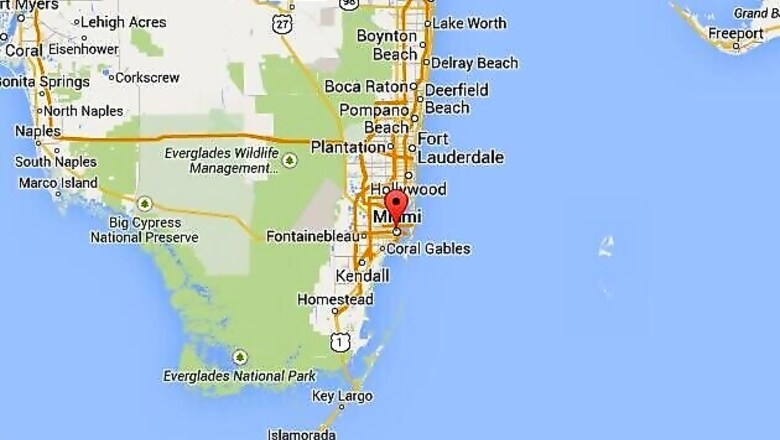
views
Miami: Irfan Khan, a naturalised US citizen from Pakistan with a wife and two children, worked hard to realise the American dream after arriving in this country in 1994.
He held jobs in South Florida as a taxi driver, service technician and operated a limousine company. He was an avid cricket player. Then he stepped up to a California computer industry job in 2011 that promised a good living.
A short time later, Khan was indicted along with his father and brother, both Muslim imams at Florida mosques, with conspiring to provide up to USD 50,000 to the Pakistani Taliban terror group.
Khan spent 319 days in solitary confinement before federal prosecutors abruptly dropped all charges in June 2012. "It was very, very hard," Khan said of his days spent praying and reading in that lonely cell.
Later, a federal judge ordered the acquittal of Khan's brother for lack of evidence, although their elderly father, Hafiz Khan, was convicted at trial and sentenced to 25 years behind bars. He's serving that time at a federal prison in North Carolina.
Now, Irfan Khan is suing the US government for malicious prosecution, accusing authorities of essentially manufacturing a non-existent case against him. He is seeking potentially tens of millions of dollars in damages.
A Miami federal judge refused the US Justice Department's attempt to get the case dismissed, and it's headed for a June 2015 trial date.
There have been countless complaints about government overreach and collateral damage in the war on terrorism since the al-Qaida attacks of September 11, 2001.
Yet it's rare for the Justice Department to lose any criminal case, especially in the national security realm, and rarer still for an individual to successfully sue the government for a flawed prosecution.
Khan, 41, has a chance to accomplish both. Now back to driving a taxi, Khan said it's been impossible for him to get a better-paying job because of the notoriety of the original charges, which pop up any time a prospective employee searches his name on the Internet.
He's had trouble opening bank accounts, leasing a car and getting a mortgage. His children, haunted by their father's arrest, now fear the police.
Friends and even family shun him, asking that he delete their phone numbers in fear that they too will be targeted for surveillance.
"Everywhere I look is a dead end for me," Khan said. "I was unfairly targeted and I don't want this to happen to anybody ever again. I just want justice."
The Miami US attorney's office and FBI declined comment, citing the ongoing litigation. In court filings, the Justice Department denies fabricating evidence or painting a misleading picture of Irfan Khan's role in the alleged plot.
Assistant US Attorney Carlos Raurell said there was ample evidence to bring his case to a grand jury, which did approve his indictment.




















Comments
0 comment